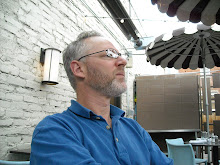From a recipient's perspective rather than the perspective of an out-of-touch Beltway insider in a baby-blue tie, unemployment insurance doesn't prevent us from taking work, but from taking the wrong work. Everybody has his/her personal threshold for how long s/he can last, financially and emotionally, before taking the first crappy job that comes along. I had several job opportunities before landing THE opportunity, but receiving UI helped give me the confidence to turn them down so I could keep looking.
Macro-economically, this makes no sense at all: I should have taken the first thing that came along because the really good job, the one that I hoped was out there somewhere, would still be out there somewhere, and someone else would get it. A machine doesn't care where its cogs come from. This is precisely how they used to do it in planned economies like Red China. (Take that, Representative Boenhaed.)
As a human being with aspirations other than taking the first paycheck that comes along, however, one wants to get what the HR folks call "the right fit." And that takes time.
Time, then -- more than groceries -- is what UI buys us. Like any other social benefit, it also buys us a level of counter-revolutionary stability. Think of UI as an alternative to hiring the Pinkertons. Not having an army of unemployed throwing rocks at your limousine seems like a decent return on investment.

No comments:
Post a Comment